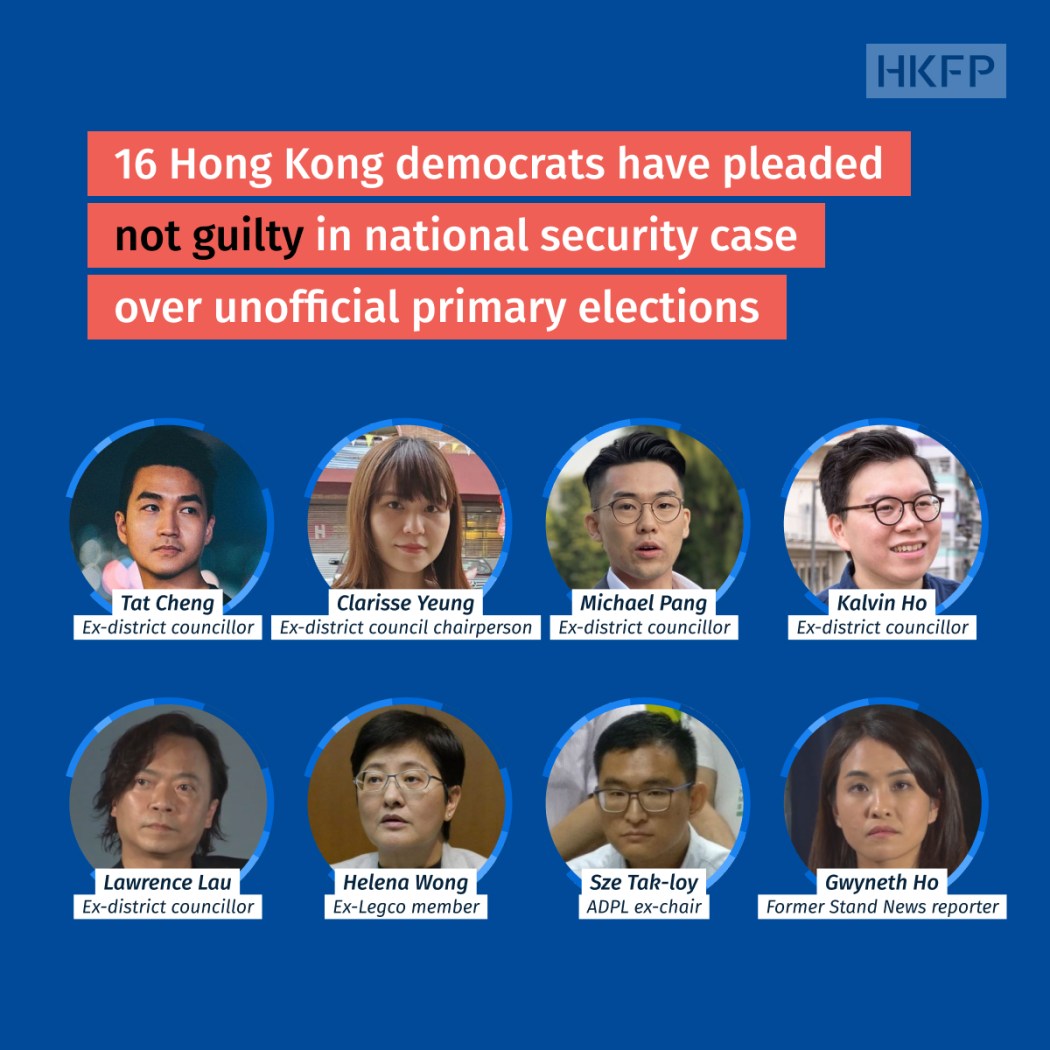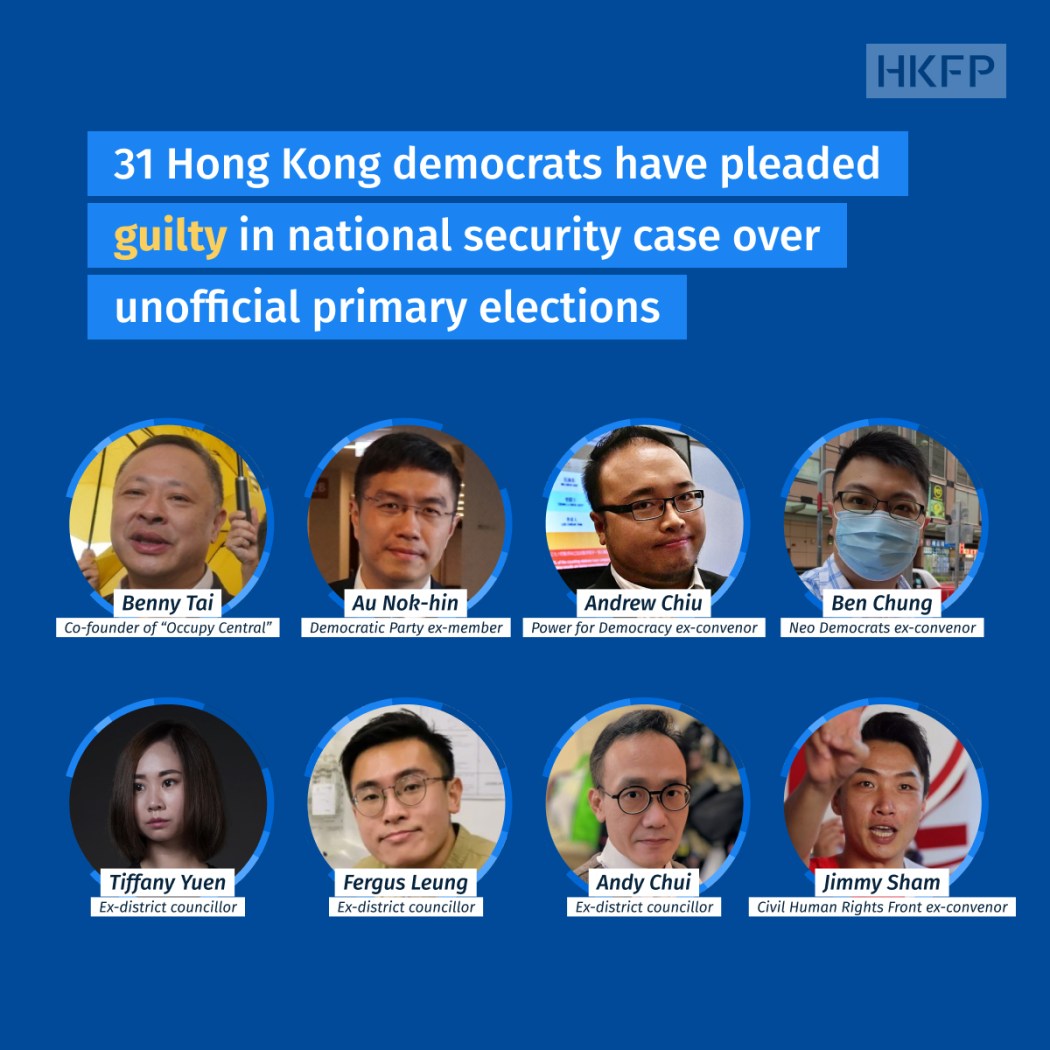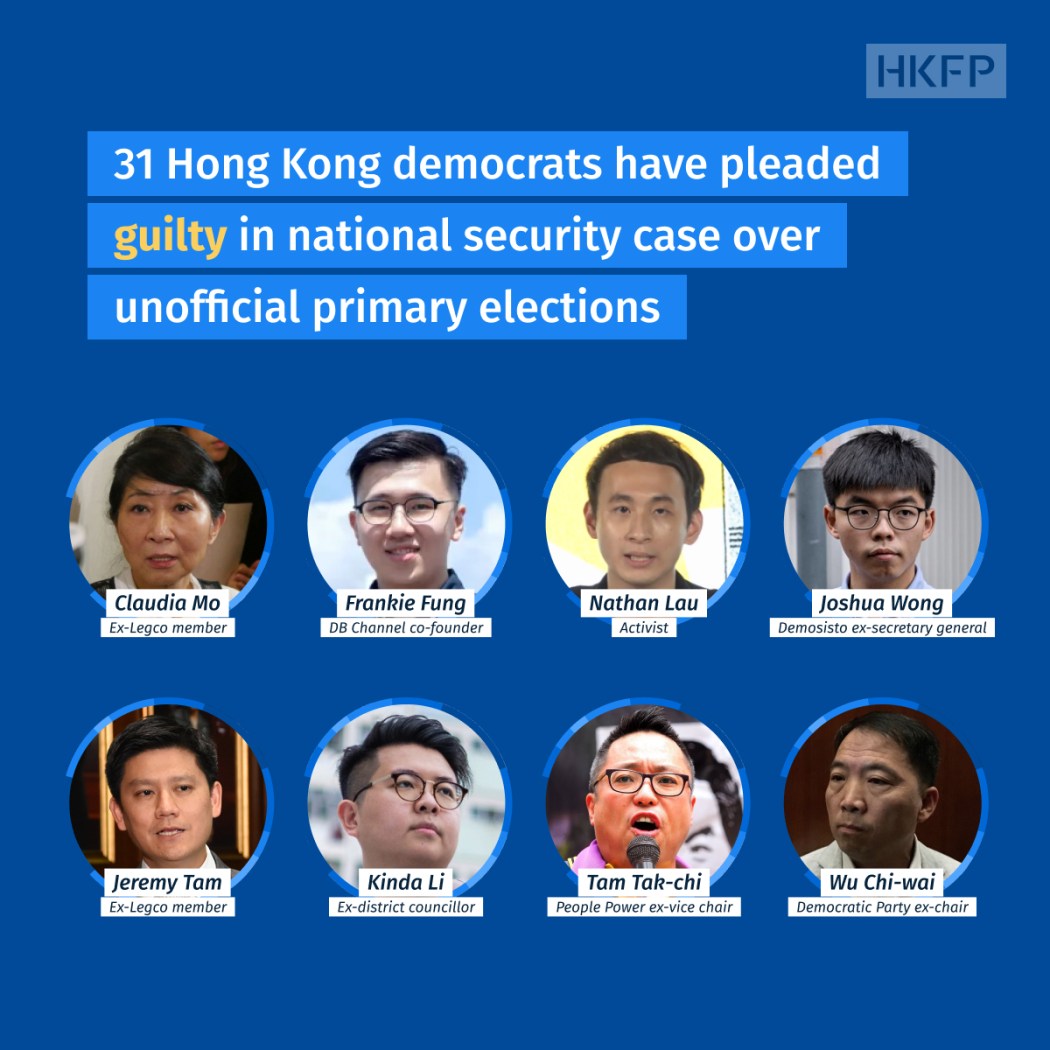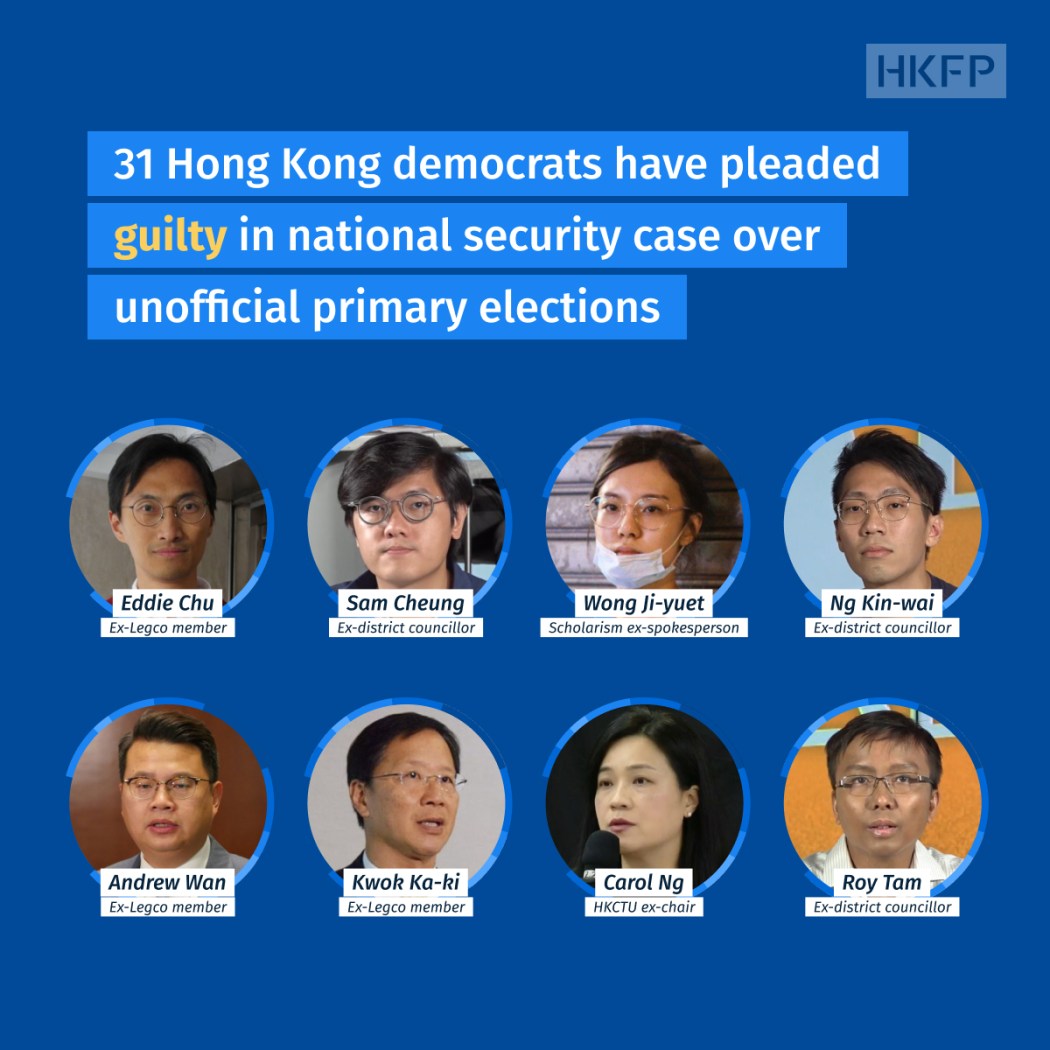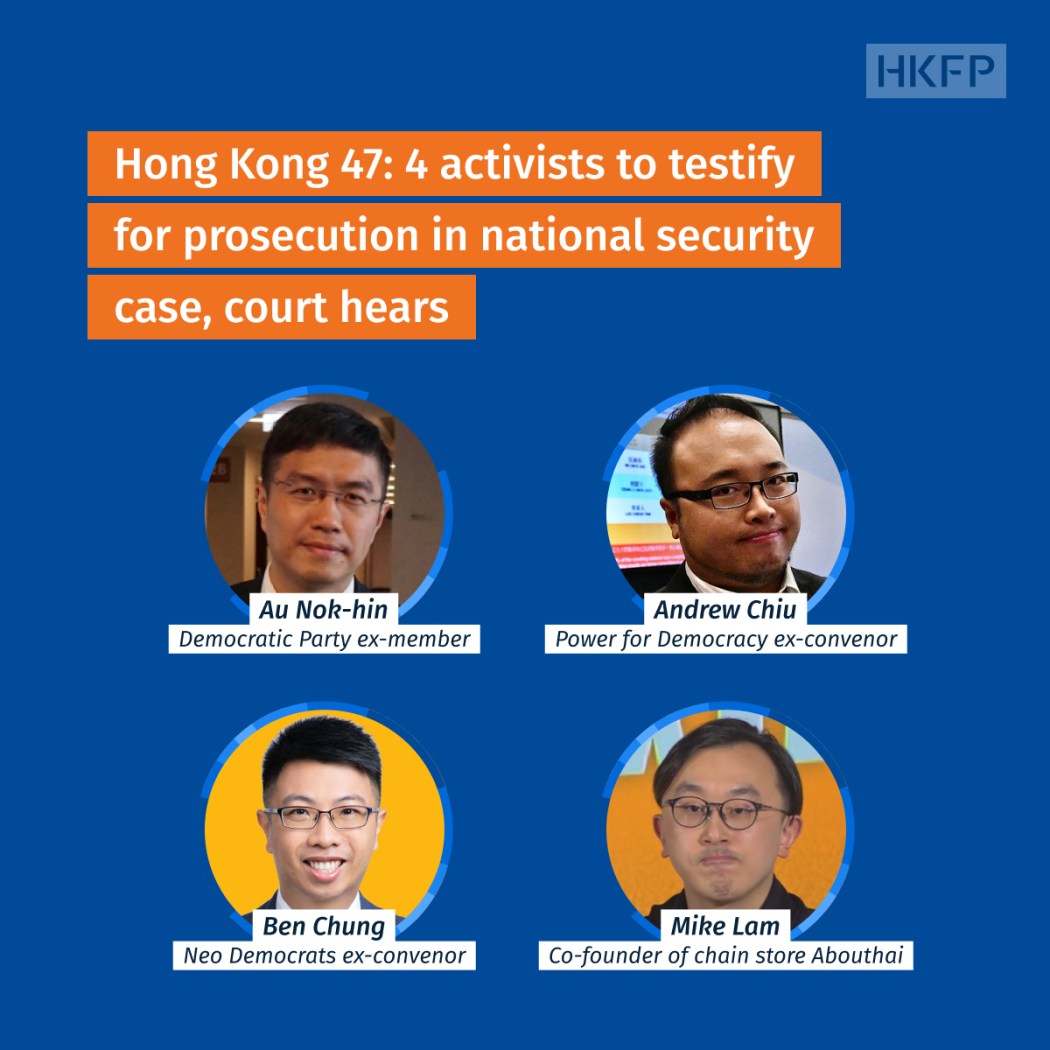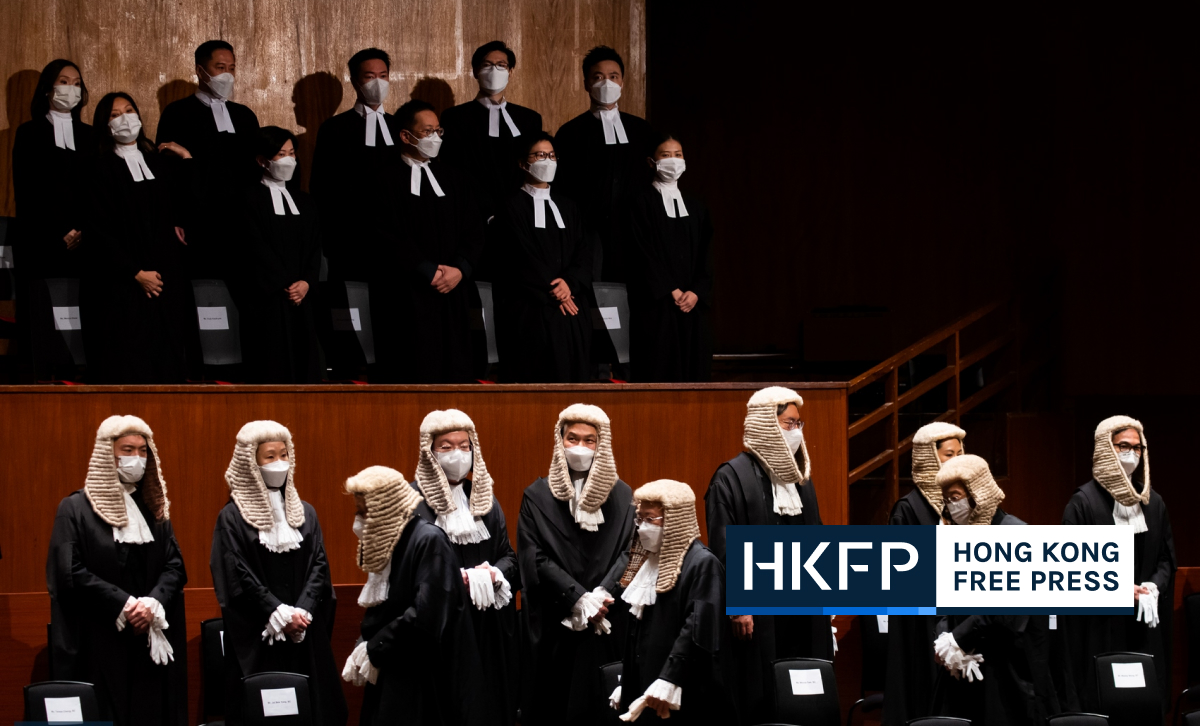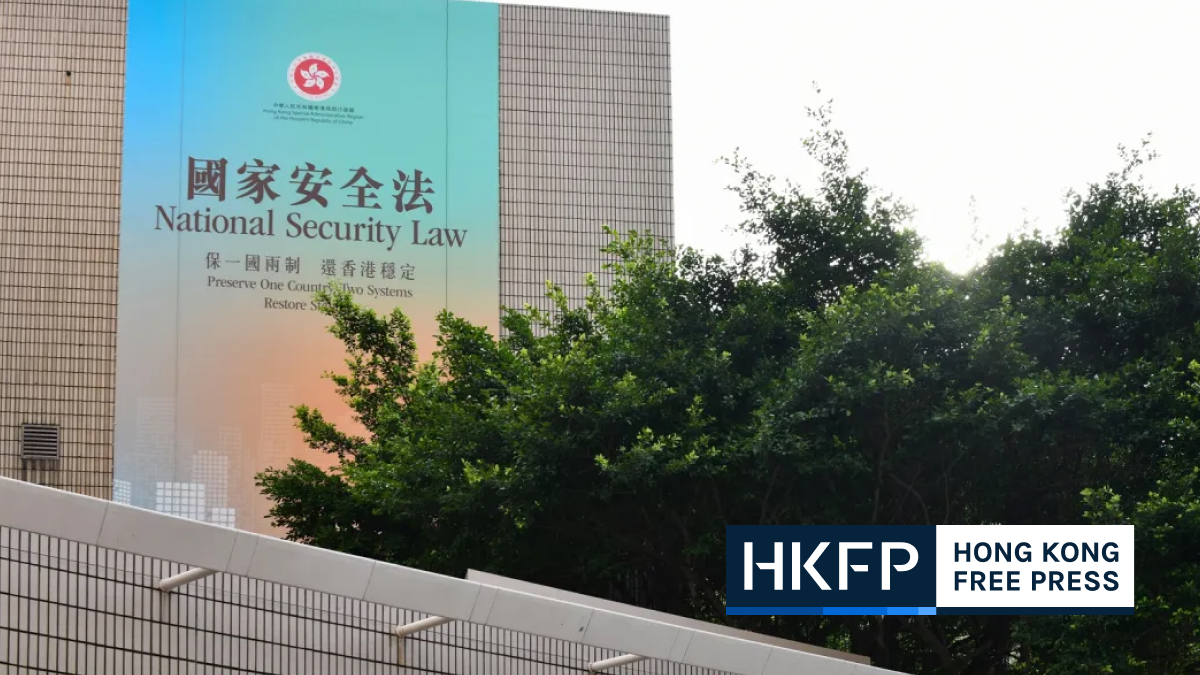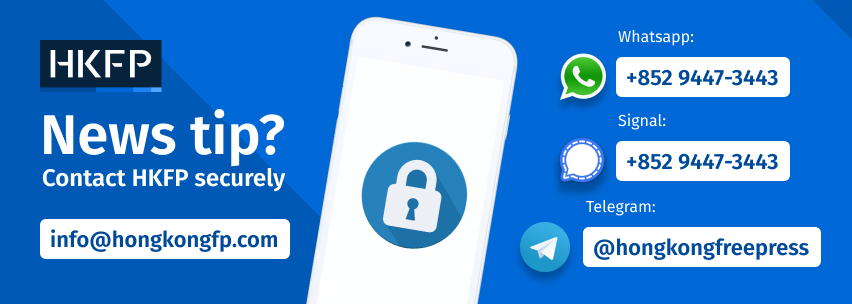An ex-Hong Kong district councillor standing trial in the city’s largest national security case has said that his views on voting down government funding differed from his political party.
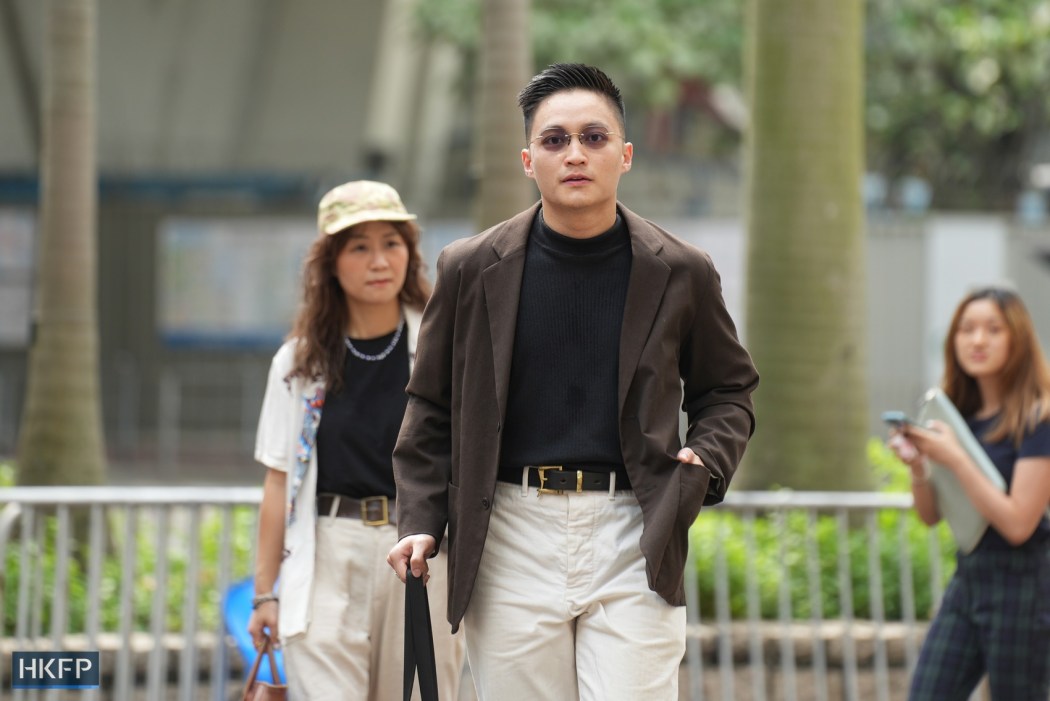
Lee Yue-shun, a member of the since-disbanded Civic Party, took to the witness stand on Friday as the trial entered its 109th day. Wearing a black top and a dark brown blazer, he said in Cantonese that he wanted to run in the Legislative Council elections because of his work as a district councillor, and also because he wanted to fight for funding for certain sectors.
Three years ago, when asked by then-lawmaker and fellow Civic Party member Jeremy Tam if he wanted to take part in the elections, Lee said he told Tam that he had a different stance from the party when it came to vetoing the government’s budget.
Lee is one of the 47 democrats charged in a conspiracy to commit subversion case that centres around an unofficial legislative primary election held in July 2020. Prosecutors have alleged that the democrats intended to abuse their powers as lawmakers – if elected – to indiscriminately vote down government bills and paralyse government operations.
The 16 democrats who pleaded not guilty are being tried by three hand-picked national security judges and face up to life in prison if convicted.
The majority of the defendants were denied bail and have been remanded for over two years since their March 2021 arrests. Lee is among the 13 who are on bail.
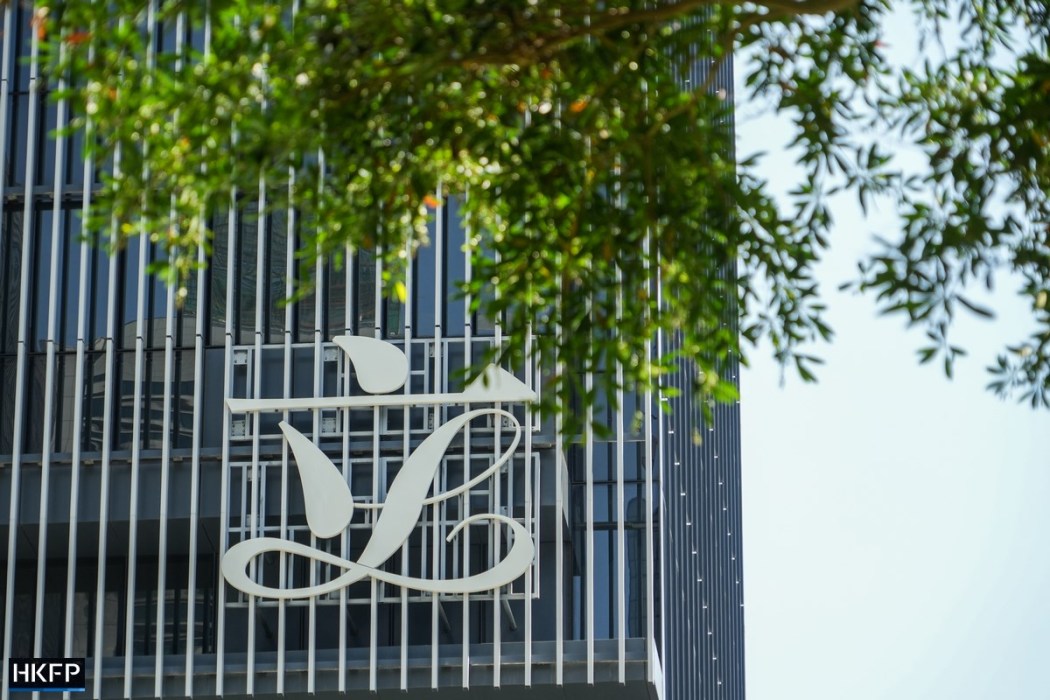
Kwan also asked Lee if he had pushed for vetoing the government budget during a debate forum ahead of the primaries.
Lee said he had not. “I have never advocated that before,” he said.
Protest anniversary arrest
Friday was Lee’s second day testifying. He said he applied via the Civic Party’s “conscription” mechanism for selecting candidates in early June 2020 – a month before the primaries – stating that he was interested in running in the Legislative Council race. But his application was unsuccessful.
The Civic Party, which was the city’s second-largest pro-democracy party, voted to dissolve in May this year. The decision came after the party’s executive committee posts were left vacant as no members filed nominations to take up positions.

His barrister, Steven Kwan, asked him why he was not allowed to run. Lee said he hoped the party would be able to fully fund his campaign expenses, and that he had asked for HK$400,000 for the primaries as he “didn’t have much money.” The party turned him down, taking into account the large sum of money, and the fact that his chances of winning were seen as low.
But around two weeks later, Lee was arrested during a demonstration to mark the one-year anniversary of June 12, 2019. On that day, police officers fired tear gas for the first time during the protests and unrest that year, as demonstrators gathered outside the Legislative Council and clashed with riot police.
After the arrest, Lee said he received a call from a vice-chairperson of the Civic Party, informing him of the party’s updated decision.
“He called me and said that my arrest sparked a lot of attention among the party’s senior management… and they made some donations to support me to run,” Lee recalled.
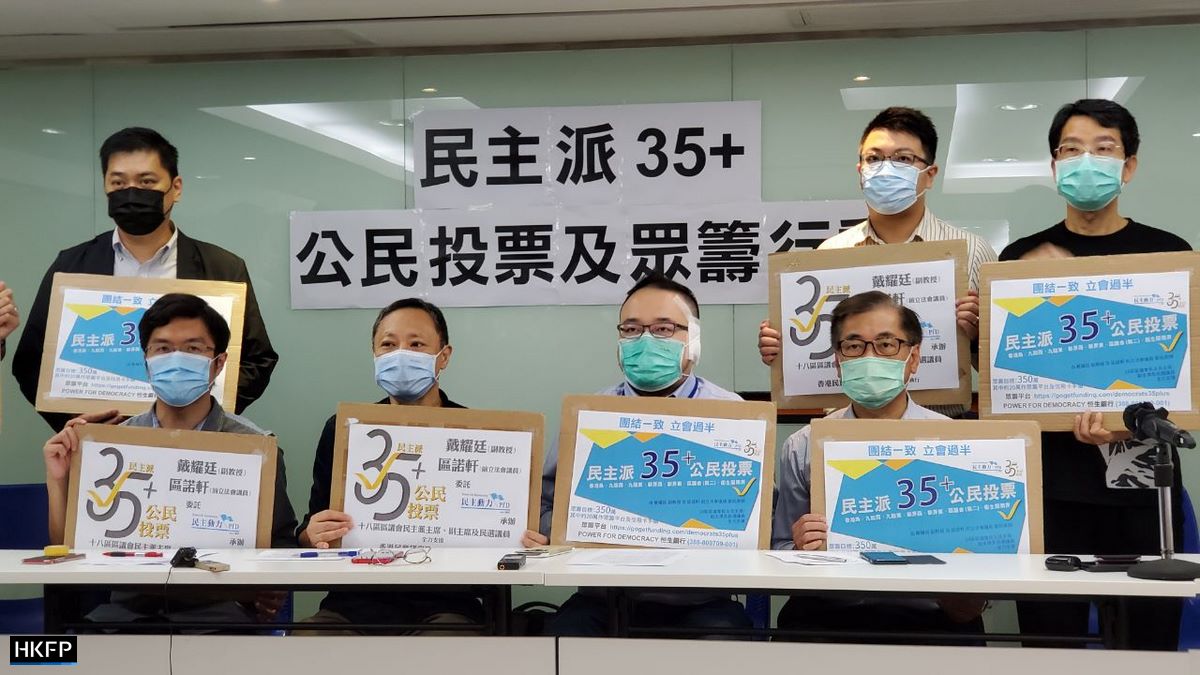
Lee ran in the primaries’ “super seat” race, an election category in which only district councillors were allowed to run. Lee came in last, receiving only around 2 per cent of the total votes, he told the court.
Untouched pamphlets
Lee was also questioned over his campaign materials on Friday – specifically about a set of pamphlets he printed.
He said he ordered the printing of thousands of copies of pamphlets in late June to distribute at street booths. He told the court he passed out “70 to 80 per cent” of the first batch of 1,000 copies on the afternoon of June 28 and the morning of June 29.
But the second batch of 5,000 copies, which he received on June 30, were left untouched. The Beijing-enacted security law came into effect at 11 pm that day.
“You told us you did not distribute any of them,” Kwan said. “Why?”
Lee said: “I heard the news that the Hong Kong national security law would be enacted that night, so I decided to look closely at the legislation’s content and see what happened.”

The former district councillor said he later printed a new set of pamphlets which contained modified wording. Text relating to voting down the budget to pressure the government to give into the five demands that originated from the 2019 protests – which Lee said was used by other Civic Party members too – was replaced by reminders for people to vote in the primaries, Lee confirmed as copies of the pamphlets were presented in court.
Lee will continue testifying on Monday.
In June 2020, Beijing inserted national security legislation directly into Hong Kong’s mini-constitution – bypassing the local legislature – following a year of pro-democracy protests and unrest. It criminalised subversion, secession, collusion with foreign forces and terrorist acts, which were broadly defined to include disruption to transport and other infrastructure.
The move gave police sweeping new powers, alarming democrats, civil society groups and trade partners, as such laws have been used broadly to silence and punish dissidents in China. However, the authorities say it has restored stability and peace to the city.
Support HKFP | Policies & Ethics | Error/typo? | Contact Us | Newsletter | Transparency & Annual Report | Apps

